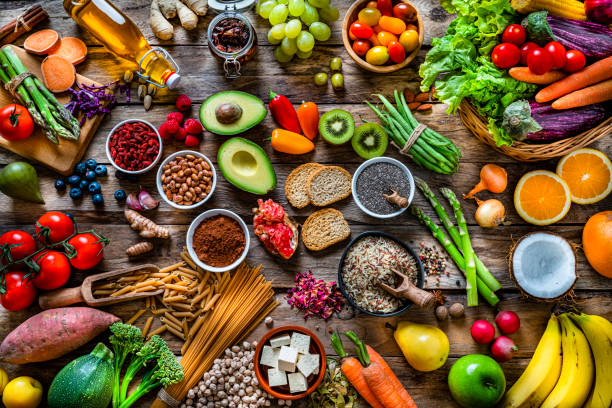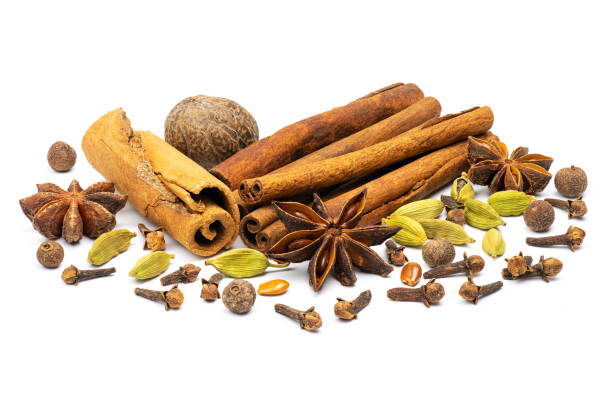Healthy Living
Food Consumption
Food types and combinations are important. When it comes to eating food, a good place to start is to always eat food that you enjoy and that serves and feeds your body what it needs to function optimally. And also knowing that each food you eat will either nourish you or contribute to disease in your body; as they say, “to eat is a necessity, but to eat intelligently is an art.” With this at the back of our minds, let us dive in.


Consider Your Sugar Level
A general rule is to always consider how what you are eating will affect your blood sugar, whether will it spike it. The majority of people are not aware that they have insulin resistance. Any time you eat a meal heavy with carbohydrates, insulin will always be secreted, and there might be a blood sugar spike depending on the overall composition of the food, is there adequate protein, fat, and fibers to balance the meal.
When Eating Always Include These
While consuming meals heavy with carbohydrates, always include fiber, veggies, protein, and fat with your carbohydrates to balance your blood sugar, which will keep you full for a while and prevent frequent cravings, and inversely reduce inflammation. Frequent glucose spikes are associated with elevated inflammation in the body.
To address the elephant in the room, supplements are good and appropriate when there is a deficiency; meanwhile, supplements should not replace unhealthy diets


What Exactly Is an Unhealthy Diet?
Non-communicable diseases (NCDs) and other health issues are influenced by diets rich in sugar, saturated and trans fats, low fiber foods, and sugary beverages. These health hazards are exacerbated by large amounts of fast food and convenience foods.
According to the World Health Organization, a normal diet involves a balance between the energy expended from food and the energy expended from physical activity. Energy from fats that account for less than 30% of total intake; staying away from saturated fat consumption; eliminating trans fats; limiting sugar and salt consumption; and increasing the consumption of fruits, whole grains, nuts, and legumes.
What Unhealthy Diet Do To You
People are increasingly realizing that what they eat is important. You can’t put junk food in your body and be healthy. All sorts of problems can develop, like diabetes, heart disease, obesity, and strokes. Gardening not only helps with exercise and mental health, but it can improve diet as well.

Does Blood Sugar Cause Inflammation?
People who consume a lot of refined sugar in their diets may be at higher risk of developing chronic inflammation. According to research, people who consume and drink less sugar have lower levels of inflammatory markers in their blood.
If you are trying to get pregnant, a good place to start, as with most things, is to balance your blood sugar to avoid frequent spikes, which can drive or promote inflammation. This knowledge will not be available to many women until they are trying to get pregnant. Women have a difficult pregnancy and postpartum too because they are not aware. For instance, a couple that wants their body to be the healthiest it can be in anticipation of their baby, this is to avoid exposing some toxins to the baby.

Remember that human microbiomes and genetic makeup are unique to individuals, and they shape lives not only in mothers’ wombs but also in lives after birth.

Does Blood Sugar Cause Inflammation?
People who consume a lot of refined sugar in their diets may be at higher risk of developing chronic inflammation. According to research, people who consume and drink less sugar have lower levels of inflammatory markers in their blood.
If you are trying to get pregnant, a good place to start, as with most things, is to balance your blood sugar to avoid frequent spikes, which can drive or promote inflammation. This knowledge will not be available to many women until they are trying to get pregnant. Women have a difficult pregnancy and postpartum too because they are not aware. For instance, a couple that wants their body to be the healthiest it can be in anticipation of their baby, this is to avoid exposing some toxins to the baby.
Remember that human microbiomes and genetic makeup are unique to individuals, and they shape lives not only in mothers’ wombs but also in lives after birth.
Stress Management
Stress is your body’s response to anything that requires attention or action. Everyone experiences stress to some degree. However, how you respond to stress has a significant impact on your overall well-being.
Stress comes in different shades, mental, emotional, and physical stress, infection in the body, inflammation, and frequent blood sugar spikes are all forms of stress. When dealing with chronic inflammation or stress, you need to address the cause. Perhaps it is exposure to toxins, a food allergy, or gut problems; look into stress management.



Why Do We Sleep?
Sleep helps us stay healthy and productive. Sleep is restorative; this is when the body repairs and heals itself.
This is the time for the body to regenerate and replenish itself. You should prioritize and optimize your sleep, make it meaningful, and make it count. Eat your last meal at least 2 hours before bedtime to allow the food to digest and to prevent your body from digesting food while you sleep.

Benefit of Water
Water is life. Surely we have all heard the saying about drinking water and minding the business that pays you. Adequate daily fluid intake of approximately 13 cups and 9 cups for healthy men and women, respectively, keeps your Cardiovascular System healthy.
The amount of water you need depends on many factors. The climate where you live, your level of physical activity, and whether you have a medical condition or other health condition all affect your recommended intake.


Exercise for Good Conditioning
The importance of exercise cannot be overstated; this is one of the most important elements of having a healthy lifestyle. You have to exercise your body; start from where you are and do what you can do.
Start slow, be consistent, and gradually increase the duration. Simply walking for 30 minutes every day will do wonders for your overall health. According to the WHO, Regular physical activity is proven to help prevent and manage non-communicable diseases (NCDs) such as heart disease, stroke, diabetes, and several cancers.

Fruits/Vegetables/Seeds
Variety is key to a healthy lifestyle, eat different fruits and veggies, and alternate between what you have access to. It’s not a crime to have favourite fruit, but in the real scheme of things, your body wants to eat to optimize your health, and variety is king.
The best sources of fiber are seeds. They contain numerous essential vitamins, minerals, and antioxidants as well as beneficial monounsaturated and polyunsaturated fats. Consuming seeds as part of a healthy diet can help lower blood pressure, cholesterol, and blood sugar levels.
When you can, always strive to buy organic produce; if it is not accessible or if it is expensive, you can buy non-organic and take your sweet time to thoroughly soak and wash the fruits before consuming. fruits provide so much more than just sugar, they supply our body with vitamins and minerals that are bioavailable to the body for use.
You can go for pumpkin seeds like chia seeds, flax seeds, sesame and sunflower seeds, Brazil nuts, pecans, and walnuts. These foods are life-saving.


Why Do You Need Protein?
Protein is a must in every meal, as a matter of fact, it should be 50% of your plate, and it contains large biomolecules and macromolecules that comprise one or more long chains of amino acid residues. As you age, you might be losing muscle, and the foods that help protect your muscles are proteins. It balances your meal and keeps your blood sugar stable.
Good protein sources are seafood, white-meat poultry, milk, cheese, and yogurt, eggs, beans, pork tenderloin.

Herbs, Condiments, and Tea
Herbs are plants that are used to flavor and aromatize food. They are also used to garnish dishes. Where will the world be without those beautiful and nourishing herbs, these herbs should be a staple in your kitchen and should make their way to your plates. From turmeric to ginger, cinnamon, cloves, black pepper, and garlic. It can be in the form of a powder stored in the kitchen.
Condiments are complementary foods that are served with some foods to add flavor. A condiment is seen as a post-cooking addition, not part of the food preparation or cooking process. Condiments like ketchup, capers, Tabasco sauce, chili sauce, and butter are provided as options to add to the dishes while dining at the table. There are also teas like spearmint tea, passionflower tea, ginger tea, and green tea.

